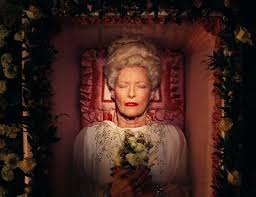Our first review post-Oscars is the Coen Brother’s newest feature film, Hail, Caeser! Starring Josh Brolin, George Clooney, and Alden Ehrenreich, it is rated PG-13 for some suggestive content and smoking.
From IMDB: Hail, Caesar! follows a day in the life of Eddie Mannix (Brolin), a Hollywood fixer for Capitol Pictures in the 1950s, who cleans up and solves problems for big names and stars in the industry. But when studio star Baird Whitlock (Clooney) disappears, Mannix has to deal with more than just the fix.
6 out of 10
I knew something was up when this movie was set for release in February. We all knows what happens when movies are released in February. They either suck or are rom-coms. Or Deadpool (more on that next week!). Unfortunately for Hail, Caesar!, it fell into the first category. Suck may be a rather strong word, so for a Coen Brothers film with a slew of stars— Brolin, Clooney, Fiennes, Johansson, Tatum, Hill, Swinton, McDormand, to go through pretty much the entire cast— disappointing might be the most appropriate adjective.
I will say, there are plenty of really funny moments, largely due to the commitment from the cast to the period. The period style is maintained throughout, buoyed by great costumes and production design but solidified by some really solid performances all around.The entire cast does a very good job; there is no true weak point. Everyone does a fantastic job of staying in the era and dramatizing the time period. Clooney and Fiennes were both hilarious, poking fun of the 1950s Hollywood with perfection. Tatum’s musical number was a sight to behold. Even newcomer Alden Ehrenreich, playing young movie star Hobie Doyle, holds his ground and is pretty funny in what ends up being a sizable role.
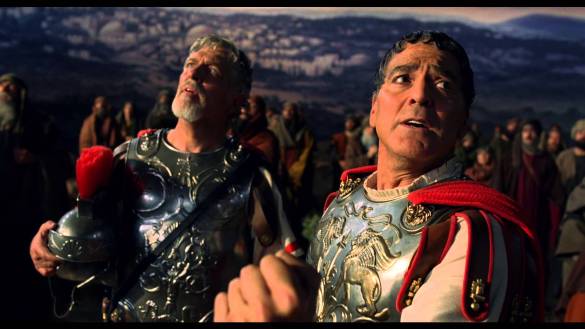
But the acting can only get it so far; the screenplay was relatively weak, incorporating many characters who ended up being useless (namely Johansson and Hill). I kept expecting them to have something to do with the conclusion of the film, but they literally just disappeared. The plot was very scattered; there were a lot of characters without a purpose and a climax that made absolutely no sense and was uninteresting. What was the deal with communism? I still don’t understand. Hail, Caeser!’s primary issue was its failure to amount to anything as a film; the ending was not satisfying nor did it make any sense. A movie with a great cast and so much potential was ruined by its failed storyline, a shame because the Coen Brother’s are usually so good with that.
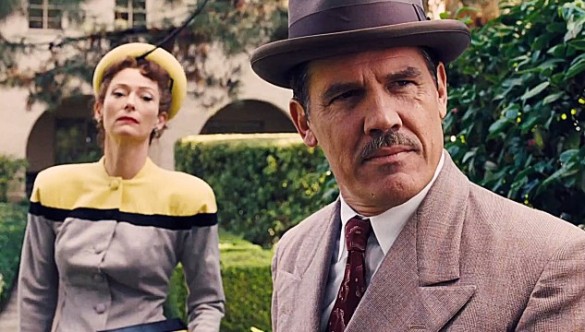
The Coen Brothers style is prevalent, from the quirky dialogue to the signature Roger Deakins cinematography. And I personally am a huge fan of them, so the eccentric nature of the film was not unexpected. In fact, I think without that signature style, the film would have lacked any charm at all. Hail, Ceaser! is a Coen Brother’s film that is funny and decent entertainment for six dollar movie Tuesday, but not a movie that I’ll remember years from now.
~Vig
8 out of 10
The Coen Brothers are some of my favorite directors making movies today. With films like Fargo and The Big Lebowski, they make some of the most wonderfully strange and critically acclaimed movies in the last thirty years. Now there latest film is Hail, Caesar!, takes place in 1950s Hollywood, focusing on Josh Brolin’s character, who is the head of the fictional Capitol Pictures and his adventures. The trailers focused on the production of the film “Hail, Caesar” and their troubles as their leading man, played by George Clooney, is kidnapped by a odd group of people.
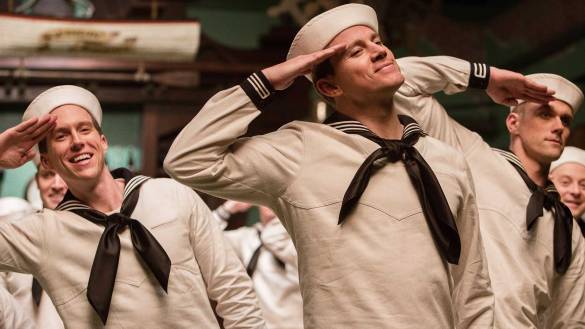
But the film is more about a day in the life of Brolin’s character in its craziness, and moreover, the Coen Brothers’ love letter to this interesting period of cinema. Brolin links us in between incredible set pieces like Scarlett Johansson in a fantastical swimming dance and Channing Tatum in a sailor’s’ musical number. And it is quite interesting to watch. The film has been getting some mixed reviews from fans who are confused about what the movie is and its unsatisfying ending. And I did walk out wanting closure, with a few plot elements that are picked up and put down before being fully explored, but it made me thinking about the film in a way that I wouldn’t have before.
I also found myself laughing consistently throughout the film. It isn’t like normal comedy with big over the top gags, but is more understated and happens in the really quick dialogue. Many well known actors, like Frances McDormand and Tilda Swinton, come in for little scenes and are hilarious in the simplicity of these characters in the overall world of the film. It also appears like really famous actors, like Brolin and Clooney, are genuinely having a really great time acting in this film.
The film is lensed by great cinematographer Roger Deakins, who once again knocks it out of the park by putting real vibrancy in the world and making the set pieces actually feel like you are watching a film in the 1950s, which is truly incredible.
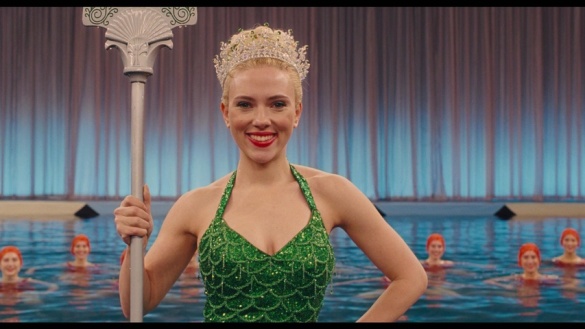
Overall, the film is definitely not the Coen Brothers best in its meandering through 1950s Hollywood, but I found myself incredibly engaged until the abrupt ending. It is another strangely structured and plotted Coen Brothers film that may have some audiences feeling sour when they leave, but is definitely not one to fully dismiss in its ambition. And being a huge fan of their offbeat style, I fully enjoyed it.
~Seth

